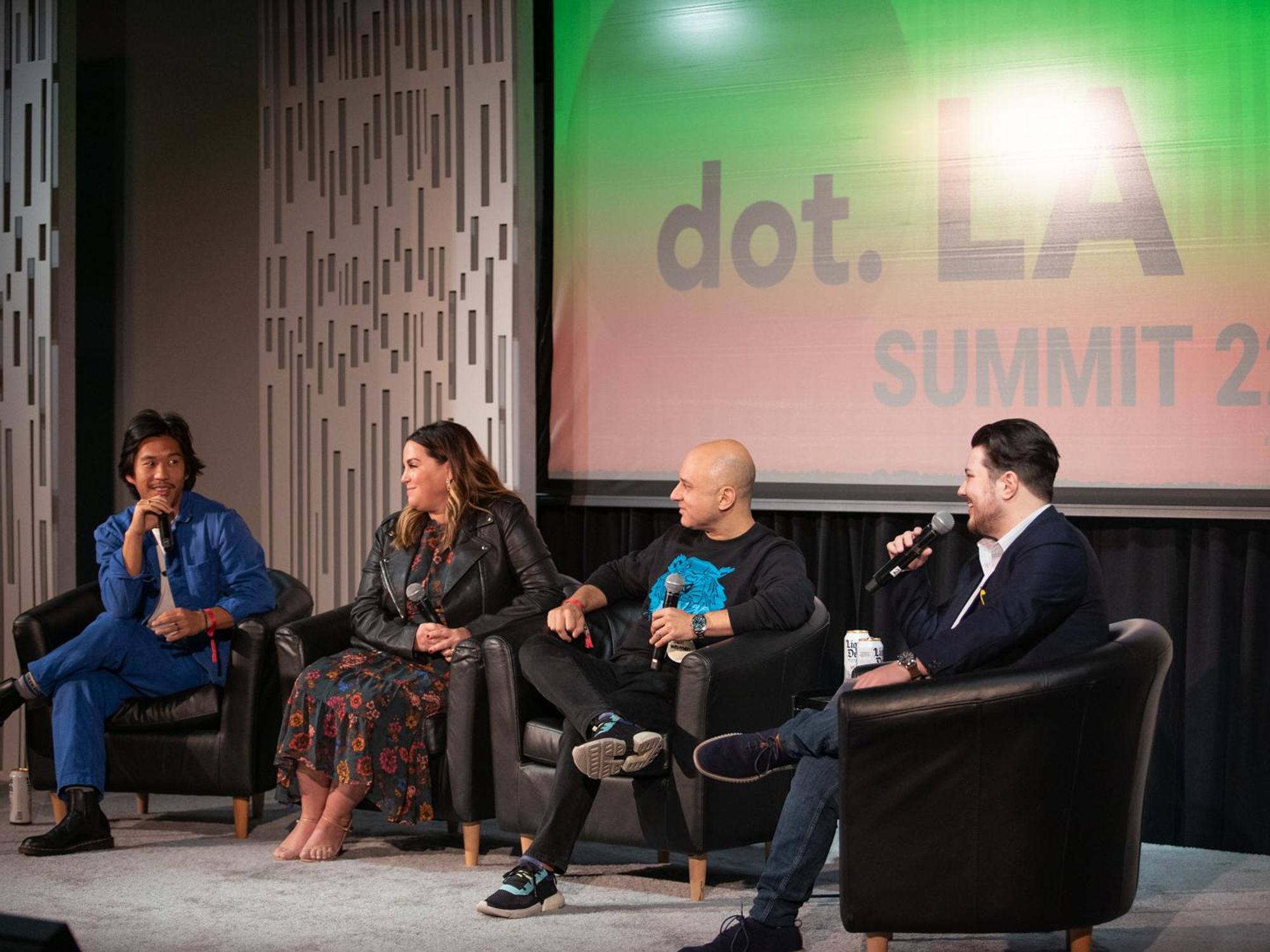dot.LA Summit: How Companies Can Build a 'Relatable' Metaverse

What’s in a name? Shakespeare didn’t hold much stock in the power of monikers, but the speakers at Friday’s “Building the Metaverse” panel disagreed. And if you ask them, the metaverse is a prime example.
Their argument goes that before Facebook changed its name to Meta, no one was giving the metaverse serious thought. But the day after, “everyone all of a sudden had a metaverse initiative,” said Sly Lee, co-founder and CEO of Emerge, a startup building a platform for touch within the metaverse.
Lee admitted that “Facebook has enabled some bad things.” But every big change in history needs a steelman, Lee explained; a strawman with a strong argument who is willing to back it fully.
So, suffice it to say, names do matter. And so do semantics: Lee admitted he’s grateful for Zuckerberg’s contributions (but qualifies that he “didn’t say love.”)
Today’s panel, which also included Josh Neuman (co-founder/CEO of MELON, a metaverse game development studio) and Tricia Biggio (CEO of Invisible Universe, an internet-first studio targeting animation) is focused on digital identifiers: names for sure, but also avatars. Moderated by dot.LA reporter Samson Amore, the panelists discussed the future of what navigating the web and socializing online might look like.
With brands rushing into the space and consumers becoming savvier than ever, the key to optimizing initiatives designed for the metaverse, Biggio explained, is to try to be as native to consumer behavior as possible. As an example, she cited a recent partnership between her company, Invisible Universe, and the recently retired Serena Williams.
“The story of Invisible was that we saw Serena had gotten her little girl her first baby doll…this doll kind of took on a life of her own,” explained Biggio. Invisible Universe saw an opportunity to transform the doll — which Serena’s social following had embraced — into a character that could live on platforms like TikTok and Instagram. Their work has since paved the way for a book called "The Adventures of Qai Qai," a television series that is currently in development, and “a few other things.”
“We’re very lucky to partner with Serena at the very genesis of the company,” Biggio continued. “I’d love to say she put down the tennis racket so she could focus on building Qai Qai with me,” Biggio joked.”
Ultimately, the panelists agreed that the quest to build the metaverse into a digital space that is understandable and appealing to consumers — most of whom are still entirely confused by the concept — is going to require an investment in community building.
But is this a space where people want to go and be with their friends? The people who will spend the most time in the metaverse are presumably Gen Z and Gen Alpha, and these younger generations, Neuman said, don’t distinguish “between their experiences in real life and the digital world.”
Call it whatever you want, but understand that the metaverse is coming for all of us — and hopefully, soon we’ll understand what that means.
- Invisible Universe's Plan to Bring Animation to Social Media - dot.LA ›
- What Will Health Care Look Like in the Metaverse? - dot.LA ›
- Is the Metaverse the Future? Why Does It Look Like the Past? - dot.LA ›
- TerraZero is Building Bars in the Metaverse, Here's Why: - dot.LA ›
- How Gaming Is Taking Over Music As Gen Z's Cultural Hub - dot.LA ›



 Image Source: Revel
Image Source: Revel
